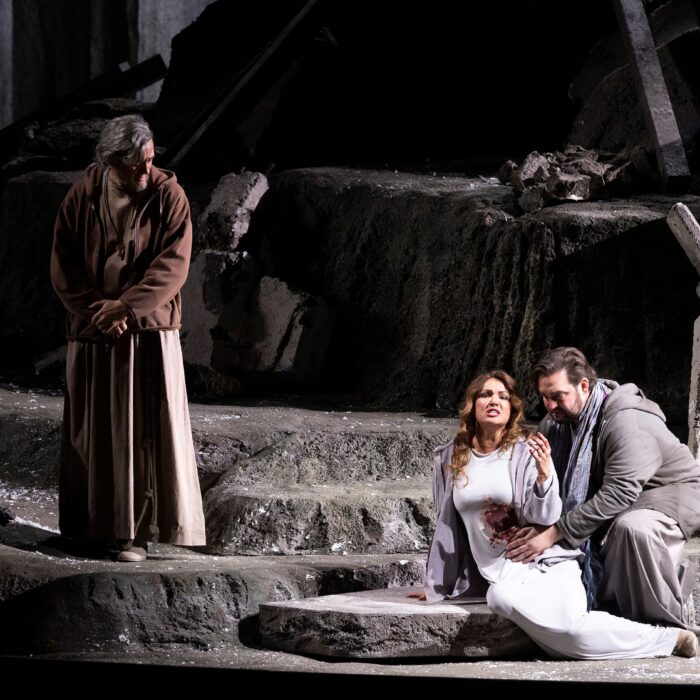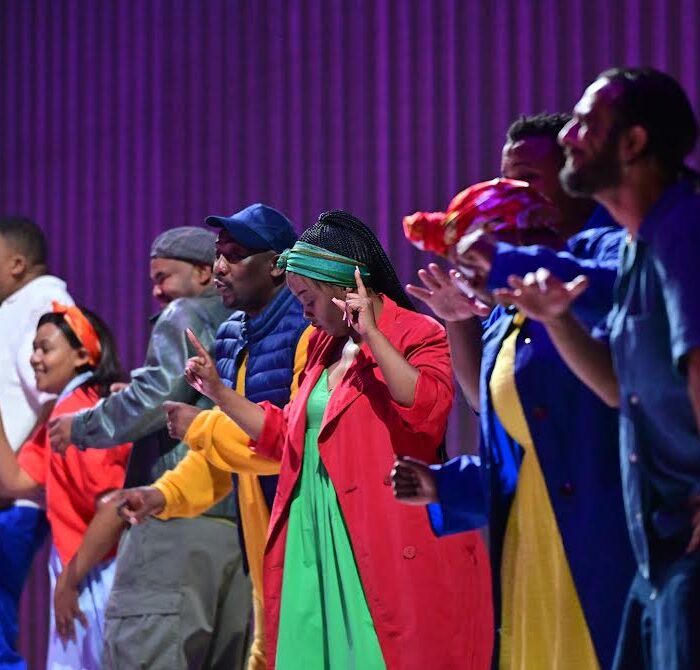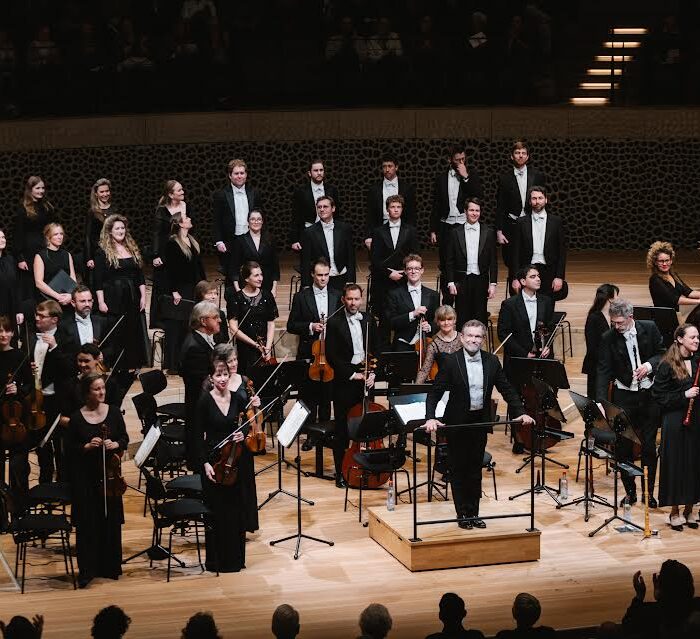
CD Review: Romantique by Dimitry Korchak
Russian Tenor Exhibits Strong Sense of Style in French & Bel Canto Repertory
By Mauricio VillaRussian tenor Dmitry Korchak’s second solo album for Decca, a compilation of romantic French arias, provides an insightful interpretation of French style, dazzling high notes ,and impressive piannismi and diminuedo phrasing.
The album presents, with the exception of the less popular Bizet’s aria “À la voix d’un amant fidele,” a selection of the most renowned lyrical and romantic French arias. It would have been more interesting to include less frequently recorded pieces, but fortunately, what we find in this album is quality over novelty.
Korchak, who has won major awards at the Francesco Viñas and Operalia competitions, began his career mainly as a Rossini tenor, appearing frequently at the Rossini Festival in Pesaro. He also dominated Mozart and Donizeti’s repertory during that early period, but his voice has evolved and in recent years he has turned to more lyrical roles like Werther, Hoffman, Arnold in “William Tell” and Gualtiero in Bellini’s “Il Pirata.”
He maintains a high tessitura with extreme high notes, but his voice has lost some of the light quality from his early years and his timbre has darkened; the voice has also gained more weight, making it adequate for the repertoire that he presents on the album.
Despite of the written and interpolated high notes, he offers a great display of astonishing dynamics with crescendos, diminuendos and breath-taking piannisimi, usually in the highest range of his voice. Although his French diction is impeccable, his method of voice production blurs his diction in his higher register, creating rotund resonances but losing the nature of the vowels.
The recording accomplishes enormously high standards with beautifully production and engineering, as well as a perfect balance between the tenor’s voice and the orchestra. Presenting the arias in blocks that respect the composer’s original intentions is a solid choice, although it would have been more adequate to order them chronologically rather than start with Bizet and end with Rossini.
Bizet & Gounod
The CD begins with two passages by Bizet. Since “Carmen” is the most popular opera by this composer, there is a tendency to believe that Bizet’s tenor writing is for lyrico-spinto male voices. But the truth is that in the rest of his repertoire he wrote for “Grand French Opera” tenor voices, dealing with a higher tessitura which is usually uncomfortable for his insistency on having tenors sing “in” and “over” the passagio.
“À la voix d’un amant fidèle” from Bizet’s “La jolie fille de Perth” follows this uncomfortable vocal writing but Korchak shows his complete control of the tessitura and his beautifully interpolated high C on the second couplet, ending the aria on an unbelievable high A diminuendo from piano to piannisimo.
Nadir’s aria “Je crois entendre encore” from “Les pêcheurs de perles” features a strong and dark sound in the recitative, before employing a dream-like quality on the floating long lines of the aria, consistently navigating mezza voce and piano dynamics. The two high B naturals are sustained with surprising ease on soaring pianissimi, and the traditionally interpolated high C and final high A natural almost sound like gorgeous falsetto. The effect is beautiful but Korchak’s timbre whitens drastically and the notes sound plain rather than ethereal.
The repertoire continues with two arias from Gounod’s most popular operas. “Ah leve toi soleil” from “Romeo and Juliet” shows Korchak’s ardent approach, amplified by his brave decision to sing it in the original key, which is a semi-tone higher than what is published and most frequently sung. His two high B naturals on “parais” are vibrant and strong and the final one starts piano and crescendoes to a wondrous forte.
The famous “Salut! Demure chaste et pure” from “Faust” shows how Korchak deals with a central tessitura successfully and pure legato lines. His diminuedo on the high C is incredible, but his descent to A flat is rather weak in execution.
Donizetti, Massenet, Rossini
Then comes a Donizetti compilation.
“Seul sur le terre” from “Don Sébastien” is written with pure legato line and an extreme tessitura, as the role was written for French tenor Duprez, a singer famous for his high notes. The passage includes three high C naturals, including a direct attack on the third one; Korchak uses a slight appoggiatura on this one. Then there is a strong high D flat on “l’amour,” one of many moments when Korchak shows off his splendid highs. However, as noted, the perfect support on the high notes comes at the cost of blurred diction.
The famous aria “Ange si pur” from “La Favorite” is written in a comfortable central tessitura where it is easier to sustain the legato lines. It includes on a high C which is easily dispatched by the tenor; he even interpolates an unexpected high D natural on the closing cadenza, showing a knack for singing high notes on the “e” vowel; it is easily the best high note in the album.
It surprised me that the second act aria from “La Fille du Régiment” came before the first act aria, but it is understandable as “Ah! mes amis!” marks a climax end for this Donizetti’s block. In “Por me rapproucher de Marie” Korchak accomplishes a flexible legato line with an unbelievable diminuendo on a high B natural, singing the traditional interpolated high C sharp and ending on a perfect piannisimo A natural.
“Ah! mes amis” is all about vocal pyrotechnic thanks to the nine high Cs and Korchak pulls them off beautifully with brilliant sound. The aria is recorded in its full form, including the long bridge with the chorus between the first and second section.
Next come two arias from Massenet’s “Werther,” a role which Korchak sang in Tokyo. These arias are with lyricism, pathos and nostalgia, the voice lighter on “O nature” with expansive vocal lines and piano dynamic on the A naturals. In “Porquoi me réveiller?” he portrays the tormented Werther with determination, his high B flats brilliant and thrilling.
The last aria is the original French version of “Guillaume Tell – ” “Aisle héreditaire,” which in my opinion is on the limits of his voice. It’s not the tessitura, which is high as in every aria and has multiple B flats and eight high Cs. But Rossini is turning toward something more dramatic in his last opera, best exemplified in the cabaletta “Amis, amis…” where the tenor must sound heroic and strong with sonorous high notes blasting over the orchestra and chorus, both at their strongest. It’s true that Korchak has sung the role already and he manages a strong presence in the most potent passages. One is left feeling that he might be pushing a slight bit to get through it. As in “Ah! mes mis,” the piece is recorded in full with the chorus appearing between the aria and cabaletta.
Ultimately, this is a very good solo album for bel canto and French opera lovers as Korchak delivers a lesson in good singing, strong high notes, and depurated French style. He is also elegantly accompanied by the Russian National Orchestra under the musical direction of Patrick Fourniller.


